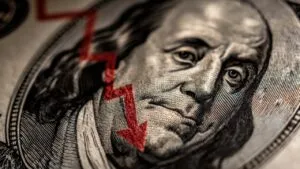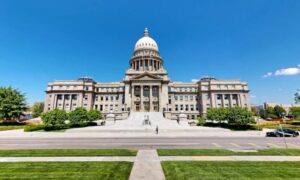The civil rights movement was, and is, one of the most important movements in the United States.
Numerous individuals took part in this activity and many of them achieved significant results.
Let us see who were crème de la crème civil rights leaders in the United States.
Table of Contents
Toggle8. Cesar Chavez (1927-1993)
Cesar Chavez was a prominent labor leader and civil rights activist who co-founded the National Farm Workers Association (NFWA), which later became the United Farm Workers (UFW).
Chavez is best known for his role in organizing a five-year strike by grape pickers in California that began in 1965.
The strike led to new collective bargaining agreements and improved working conditions for farmworkers.
Chavez’s advocacy extended beyond labor rights. He was a staunch supporter of civil rights, emphasizing the importance of dignity and respect for all workers, regardless of their background.
His dedication to nonviolent protest and his ability to mobilize workers made him a significant figure in the labor movement.
Chavez was posthumously awarded the Presidential Medal of Freedom in 1994, highlighting his enduring legacy in the fight for workers’ rights and social justice.
7. Whitney Young (1921-1971)
Whitney Young was an influential civil rights leader who served as the executive director of the National Urban League from 1961 until his untimely death in 1971.
Young focused on economic empowerment and racial equality, working tirelessly to bridge the gap between Black and white Americans.
He was known for his pragmatic approach, advocating for policy changes that would provide tangible benefits to African Americans.
Young served as an adviser to several U.S. Presidents, including:
He helped them shape federal policies on civil rights and economic opportunity. His leadership played a crucial role in the Civil Rights Movement, particularly in the areas of employment, education, and housing.
Young’s efforts were instrumental in promoting the integration of African Americans into the economic mainstream.
6. A. Philip Randolph (1889-1979)
Philip Randolph was a pioneering labor leader and civil rights activist who founded the Brotherhood of Sleeping Car Porters, the first predominantly African-American labor union.
Randolph’s activism was instrumental in advancing the cause of labor rights and racial equality.
He played a key role in organizing the 1963 March on Washington for Jobs and Freedom, where Martin Luther King Jr. delivered his iconic “I Have a Dream” speech.
Randolph’s efforts were crucial in the desegregation of the military, as he led the March on Washington Movement during World War II, pressuring President Franklin D. Roosevelt to issue Executive Order 8802, which prohibited racial discrimination in the defense industry.
Randolph was awarded the Presidential Medal of Freedom in 1964 in recognition of his lifelong dedication to civil and labor rights.
5. James Farmer (1920-1999)
James Farmer was a civil rights activist and co-founder of the Congress of Racial Equality (CORE).
Born in Marshall, Texas, Farmer was deeply influenced by the teachings of Mahatma Gandhi and adopted nonviolent resistance as a core principle in his fight for civil rights.
He organized and led the Freedom Rides in 1961, a series of integrated bus trips through the American South to challenge segregation in interstate travel.
These actions brought national attention to the civil rights movement and highlighted the violent resistance faced by activists.
Farmer’s leadership in CORE helped to bring about significant changes in public policy and contributed to the dismantling of Jim Crow laws. Later, he served in the Nixon administration as an assistant secretary of the Department of Health, Education, and Welfare.
In 1998, Farmer was awarded the Presidential Medal of Freedom, acknowledging his vital contributions to the struggle for civil rights and social justice.
4. Roy Wilkins (1901-1981)
Roy Wilkins was a central figure in the civil movement, serving as the executive director of the National Association for the Advancement of Colored People (NAACP) from 1955 to 1977.
Under his leadership, the NAACP achieved several legal victories, including the landmark Brown v. Board of Education case, which declared racial segregation in public schools unconstitutional.
Wilkins was a key organizer of major civil events, such as the 1963 March on Washington and the 1965 Selma to Montgomery marches.
His strategic approach and commitment to nonviolent protest were instrumental in advancing civil rights legislation, including the Civil Rights Act of 1964 and the Voting Rights Act of 1965.
Wilkins’ ability to work within the political system and his tireless advocacy for racial equality left an indelible mark on the civil rights movement, ensuring lasting changes in American society.
3. John Lewis (1940-2020)
John Lewis was a towering figure in the civil rights movement, known for his unwavering commitment to nonviolent protest and social justice.
As a co-founder and chairman of the Student Nonviolent Coordinating Committee (SNCC), Lewis organized and participated in numerous civil rights actions, including:
- The Freedom Rides
- The Selma to Montgomery marches
He was one of the keynote speakers at the 1963 March on Washington, where he delivered a powerful speech advocating for justice and equality.
Lewis’ activism extended into his political career, where he served as a U.S. Representative for Georgia for over three decades.
Throughout his life, he remained dedicated to the principles of nonviolence and civil rights, earning him widespread respect and admiration.
2. Rosa Parks (1913-2005)
Rosa Parks is often referred to as “the mother of the Civil Rights Movement” for her pivotal role in igniting the Montgomery Bus Boycott.
On December 1, 1955, Parks refused to give up her seat to a white passenger on a segregated bus in Montgomery, Alabama.
Her arrest sparked a year-long boycott of the city’s buses, led by Martin Luther King Jr., which ultimately led to a Supreme Court ruling that segregation on public buses was unconstitutional.
Parks’ act of defiance became a symbol of the fight against racial injustice and inspired many to join the movement.
Throughout her life, she remained active in the struggle for civil rights, working alongside other leaders to combat segregation and inequality.
Parks was awarded both the Presidential Medal of Freedom and the Congressional Gold Medal, cementing her place as an icon of the civil rights era.
1. Martin Luther King Jr. (1929-1968)
Martin Luther King Jr. is perhaps the most well-known leader of the Civil Rights Movement.
His philosophy of nonviolent protest and his eloquent speeches, such as the iconic “I Have a Dream” address during the 1963 March on Washington, galvanized millions in the fight for racial equality.
King played a role in the passage of the Civil Rights Act of 1964 and the Voting Rights Act of 1965, landmark legislations that transformed American society.
He led numerous protests and marches, including the Montgomery Bus Boycott and the Selma to Montgomery marches, which were instrumental in highlighting the injustices faced by African Americans.
King’s assassination in 1968 was a tragic loss for the nation, but his legacy continues to inspire movements for justice and equality worldwide.
Related Posts:
- Safest Countries in the World in 2025 - GPI…
- 26 Most Dangerous Cities in US - Updated Statistics for 2025
- America's Murder Capitals: A 2025 Ranking of the…
- Capital Cities in Europe: Top Destinations For You…
- How Do Civil Rights Movements Continue to Shape…
- Top 20 Most Dangerous Cities in California for 2025…









